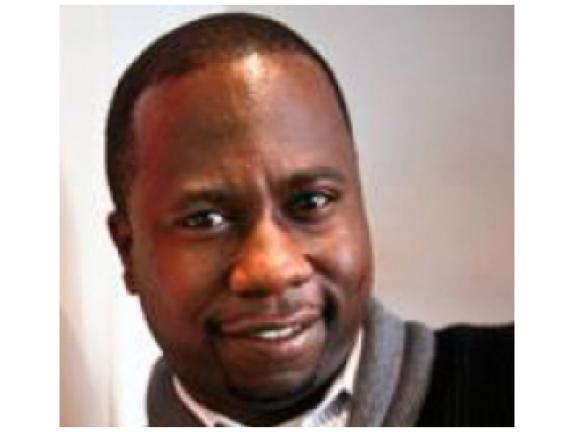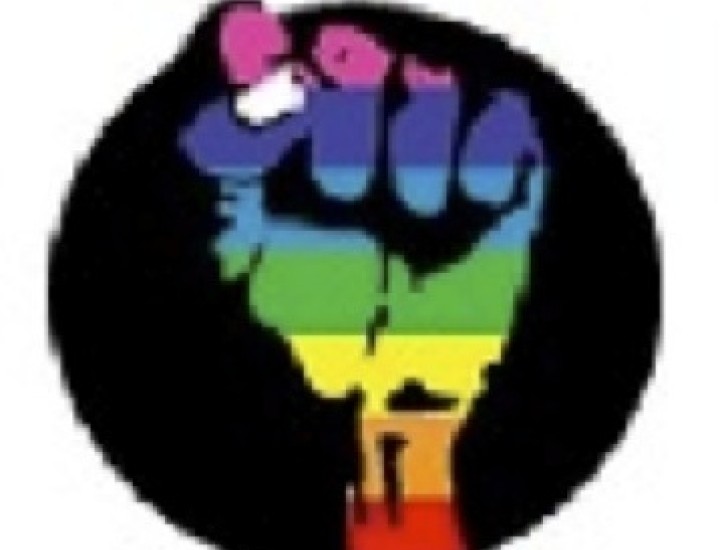Intersectionality and HIV Criminalization: An Interview with Charles Stephens

Charles Stephens is the founder of the Counter Narrative Project, an initiative that seeks to amplify the voices of Black gay men. His article Black Gay Male Criminalization and the Case of Michael Johnson, published on the on-line news site RHRealityCheck.org, uses the arrest of a Black gay college student, the police shooting of Michael Brown in Ferguson, Missouri, and the history of the criminalization of Black men and sexuality to illustrate an intricate web of intersecting oppressions.
He was interviewed by CHLP’s Andrea Sears.
Andrea Sears Could you describe what you mean by “intersectionality’?
Charles Stephens Intersectionality is a frame, a lens, a set of political commitments. An intersectional perspective recognizes oppressions as interlocking. So you would not view oppression as a singular force, i.e. racism or heterosexism. You would look at the ways that these oppressions reinforce each other, insist upon each other, intersect and are simultaneously at work in the lives of multiply marginalized people, such as for example, black gay men. And thus, liberation wouldn’t mean liberation for a singular group, but for all oppressed communities. The Combahee River Collective Statement describes this perfectly.
In the context of mass incarceration, criminalization, particularly the way that certain communities are vulnerable, you have to think intersectionally. You can’t assume that there’s one form of oppression that’s dominant over the others because they’re all at work simultaneously. And one shouldn’t have to choose or rank which oppression is most harmful, since they all are. Any analysis of power has to consider this and any attempt at resistance has to be rooted in this. To confront criminalization, you have to deal with and be critical of racism yes, but also the ways that gender identity, sexual identity, class location, and ultimately even HIV status shapes the conditions that make one vulnerable to incarceration in the first place.
AS Michael Johnson is a young Black gay man living with HIV in Missouri who’s been arrested and charged with multiple felonies alleging that he intentionally infected or attempted to infect other men with HIV. How does his situation exemplify this concept of intersectionality?
CS What I found interesting with Michael Johnson is that there is an entire discourse about the ways that HIV affects young Black gay men, perhaps to a fault really, since unfortunately I wonder if young Black gay men collectively have become synonymous with HIV, distorting or obscuring other challenges they face, and other resources they possess. And there’s also this discourse about the way that young Black men, broadly speaking, are affected by mass incarceration, criminalization, police violence, and so forth. What’s striking to me is that I don’t see, nearly enough strategic alliances and coalitions being built across these issues. And I feel that’s an important consideration for advancing a social justice agenda.
I think all kinds of strategic alliances have to be forged, a wide network of advocates working in solidarity with each other, because the kinds of issues we face as Black gay men, like other multiply marginalized communities, are extremely complex, extremely challenging. And until we can really hone in on the ways that these various issues converge on our lives, particularly for young Black gay men, I don’t think we’ll be successful in putting forth adequate solutions to grapple with them. Our relationship to the dominant culture, to the state, is shaped by these various and intricately connected oppressive forces, our collective response, political will, has to be rooted in an intersectional analysis. We must insist upon a critical space to insert a wider social justice framework into HIV anti-criminalization activism and at the same time, and no less energetically, combat HIV stigma in anti-criminalization activism.
I don’t believe that merely doing away with laws that potentially or actually punish or criminalize people with HIV will end the ways that Black gay men are vulnerable and targeted by the criminal justice system. So I want to push this discourse further, push our advocacy efforts further, and I think HIV criminalization offers a significant starting point, a point of departure for this, since in the lives of Black gay men, HIV stigma, racism and narratives of sexual deviance collide.
AS There’s been a lot of media coverage of Michael Johnson’s case. Some of it has been very sympathetic to him and has pointed out some of the intersectionality that you’re talking about but the mainstream media, by-and-large, has not. Does that reflect the need to address this as an intersectional issue?
CS There have perhaps always been ethical journalists, historically, pushing the envelope in terms of the kinds of news that people have access to, helping to change the hearts and minds of the American public.
Now that being said, there are also many ways in which journalists and the media have been highly problematic if not complicit in advancing dehumanizing narratives of oppressed communities, which far too often, result in consequences in the policy realm. I don’t think that journalists are always adequately trained or equipped to grapple with intersectional issues. The realities of oppressed communities don’t easily lend themselves to simplistic narratives. There is a diverse range of actors, complicit entities and forces, institutions that collide in our lives and to tell those stories responsibly requires a remarkable amount of courage, imagination, and commitment. This is particularly evident when a story is framed around simplistic notions of “innocence,” and “guilt.”
AS How do you think this concept of intersectionality should shape the approach to advocacy to end HIV criminalization?
CS I think it’s important for people working on HIV criminalization to form alliances with people working against against mass incarceration in communities of color. The work being done against the school-to-prison pipeline can be a frame and model for how we think about the political possibilities of working against the clinic-to-prison pipeline.
I think there’s an exceptional amount of political will right now around the militarization of the police and the criminalization of queer and trans people and certainly queer and trans people of color. So I think now is the time to try to form these really important strategic alliances because people who do anti-prison industrial complex work might not be thinking about HIV criminalization, even though young people of color, particularly young Black gay men are being affected by HIV and by criminalization.
I want to also hold the legacy and tradition of oppression, but also and just as forcefully, the legacy and tradition of resistance of Black gay men against mass incarceration and police violence. You have figures like Joseph Beam, editor of the landmark Black gay men’s anthology In the Life, very much concerned about the impact of imprisonment on black communities. He was also influenced by Black Lesbian Feminism and thus his work has an intersectional lens. So our work is to build upon those efforts. Movement building cannot be an ahistorical venture.
HIV criminalization is about social justice. It forces us to rethink the role of race and class and gender and sexuality in both creating vulnerability to health disparities and also vulnerabilities to imprisonment. HIV advocacy is not just about securing rights, but fighting for justice and advancing freedom.
